If you’re a regular reader of this blog, the name Scott Morrow will be a familiar one. If you’re not a reader, Morrow is the Seattle man who founded and controls two Seattle-area homeless shelter organizations. His Rotund Eminence can regularly be glimpsed at city council hearings and public demonstrations, looking like a cross between a hippie and an overgrown garden gnome.
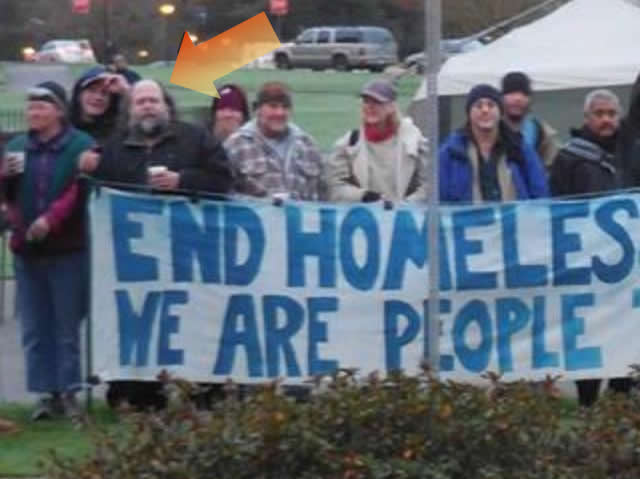
Mr. Morrow goes to Washington: Lobbying the state legislators in Olympia for more money “for homeless people”
Recently Morrow was in the news again. And not in a good way, as usual. Seems he’s been involved in another power struggle at one of his Nickelsville homeless encampments in downtown Seattle and the residents gave him his walking papers with a “no confidence” vote. At first, Morrow appeared to be going gracefully. The next day, he sent this e-mail around to the people at camp:
Scott-Morrow-Resignation-Letter-1.31.15
However, on Friday, February 6, the Seattle Times published an article describing how two key Morrow allies—the church that controls the land Nickelsville is on and a huge non-profit housing group called LIHI–threatened to pull the plug on the camp if Morrow wasn’t reinstated as boss.
From the Times article:
“It saddens us to inform you of the serious consequences of your recent vote of no confidence in staff person Scott Morrow,” the Lutheran Church of the Good Shepherd’s Rev. Steven Olsen wrote in an email.
“Scott’s role as staff person for the camp and liaison for the church host is an essential component of our working relationship. For this reason, your decision makes it impossible for us to continue as church host for Nickelsville,” Olsen added.
Olsen’s church controls the site under an agreement with property owner Coho Real Estate. The church has served as Nickelsville’s official host because a city law passed in 2011 allows religious entities to host tent cities with no permit and no time limit.
The Low Income Housing Institute, a financial backer of Nickelsville, also is abandoning the encampment, said the organization’s executive director, Sharon Lee.
“We have no confidence in the residents right now,” Lee said. “They’re not following the rules of self-management and they also voted out Scott Morrow.”
The Nickelsville residents who had booted Morrow were about to get back to the cold, rainy streets of Seattle if they didn’t tow Morrow’s line. Not surprisingly, the campers caved in. Three days later, on February 9, the Seattle Weekly ran a piece on the rebels’ capitulation . . .
In an email sent to local media today, Scott Morrow – the long-time homeless organizer and advocate who was ousted as the leader of Nickelsville on Jan. 29 – announced that he was reinstated by popular vote over the weekend. It’s an important development, and one that signals the end of a coup that threatened the camp’s future.
As we reported Friday, Seattle’s Low Income Housing Institute (LIHI), which pays for water, honey buckets and other services at the encampment, and Lutheran Church of the Good Shepherd, the church responsible for the agreement that allows the encampment to stay at its Dearborn Street location, had both threatened to pull their support if Morrow was not reinstated. Though Good Shepherd Pastor Steve Olsen told Seattle Weekly late last week that he remained “hopeful and prayerful” that a last-minute resolution could be reached, as of Friday LIHI and Good Shepherd were both preparing to cut ties with the camp. Without the support of LIHI and Good Shepherd, the 35 campers currently hunkered down at Nickelsville on Dearborn street would have faced eviction.
* * * * *
There are several worrisome things about this series of events.
► Blackmailing the Homeless
From Mr. Morrow’s resignation letter, it’s clear that he holds too much power over the people under his care. What he’s telling them, in essence, is that if they don’t let him be boss, he’s going to take his ball and go home. Or, in lieu of that, they can always BUY his ball from him by paying off the debts of the 501(c)3 organization that Morrow controls. In the Times piece, he claims that the Nickelsville 501(c)3 owes creditors $15,000. Presumably this is the amount the campers would have to cough up by Mr. Morrow’s February 5th deadline, if they wanted to stay on. Does it seem like a reasonable expectation that some three dozen homeless people would be able to scrape together fifteen thousand dollars in five days? Or does it seem more like blackmail?
Failing a payoff, the Nickelsville residents can always find themselves another non-profit organization to pay off the debt they owe to Morrow’s group. (Lots of luck with that.)
► Friends in High Places
Mr. Morrow’s leverage over the residents of Nickelsville goes well beyond his claim that the residents owe him money. As we see from the Times story, the residents would not have been allowed to stay, even if they had handed him $15,000 on the spot. There still would have been Ms. Lee of the Low Income Housing Institute to contend with. And also Reverend Olsen, whose church “controls” the land Nickelsville sits on. Olsen and Lee separately told the news media that, regardless of whatever other arrangements the homeless people at Nickelsville make, unless they reinstated Mr. Morrow as their boss, they would lose the patronage have to clear out, because they would no longer have the patronage of LIHI or the church.
As a result of my earlier research and tips from readers, I discovered a long-standing relationship between Mr. Morrow and Ms. Lee. Lee owes her six-figure-salary job to Morrow, since he’s a co-founder of the the organization she works for: the Low Income Housing Institute. See this story for an explanation of Mr. Morrow’s role.
Ms. Lee’s group controls tens of millions of dollars in government-subsidized housing properties in the Seattle area. The other two LIHI co-founders are Michael Reichert, director of Catholic Community Services (another non-profit whale), and Frank Chopp, Speaker of the House in the Washington State Legislature and an employee of Solid Ground (also a whale). All three of these heavy hitters Lee, Reichert, and Chopp are personal friends of Mr. Morrow’s. Chopp is particularly powerful. Between his job in the Legislature and his job at Solid Ground, Chopp controls the flow of hundreds of millions of dollars in housing projects in Seattle.
These whales all have their connections at City Hall. So, when a rag-tag band of rebels up and decides to toss Mr. Morrow out of the camp, what are the odds of Morrow’s friends at City Hall intervening on their behalf. And what are the odds of them pulling back the curtain to see just how Mr. Morrow runs his business, do you think? In addition to their multi-million-dollar contracts with Morrow’s friends at LIHI and Solid Ground, the City of Seattle also has contracts with Morrow’s other non-profit, SHARE (Seattle Housing and Resource Effort). Staff at City Hall and in the City’s Human Services Department tell me that the City likes Morrow’s outfit because it keeps people off the street and provides homeless shelter beds to the City at rock-bottom rates. That is . . . when Morrow’s not putting people out on the street himself . . .
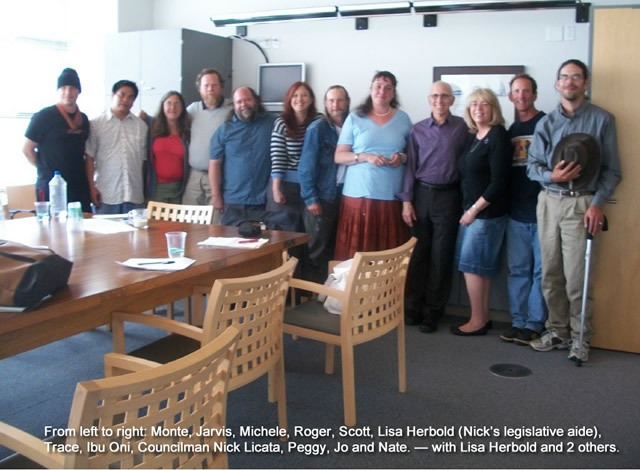
More friends in high places: Scott Morrow and SHARE with Councilmember Nick Licata, a long-time patron
► The Myth of Self-management
According to the residents of Nickelsville, as quoted in the Times story, all they wanted was the right to manage their community as they saw fit, without being threatened:
Anthony Jenkins and Lisa Hooper, two current Nickelsville residents, said they voted against Morrow because he had been threatening to take away resources, such as portable toilets, over a disagreement. Remaining residents are in talks with a different church and are hoping for an opportunity to operate Nickelsville themselves, Jenkins said.
“We just want a chance,” said Hooper, sitting inside the encampment’s tent kitchen Friday. “We can do this effectively.”
Over the years, Mr. Morrow’s representatives have assured the neighborhoods and churches that host his encampments that Nickelsville is democratically run and self-managed. Morrow has given the same assurances to government officials, in his effort to get City funding for his organization, SHARE. Indeed we see the same lingo popping up here again, in the words of LIHI’s Sharon Lee, as she explained why she was pulling LIHI’s backing from the group:
“We have no confidence in the [renegade] residents right now,” Lee said. “They’re not following the rules of self-management and they also voted out Scott Morrow.”
But wait . . . isn’t “self-management” exactly what the Nickelsville renegades ARE demonstrating? They’re thinking (and voting) for themselves for a change. And their democratic self-managed judgment was to remove Mr. Morrow–who is not homeless and is not a resident of the camp himself—from his position of authority over them. Mr. Morrow acknowledged this in the opening lines of his own e-mail:
At Nickelsville’s Weekly Meeting Thursday it was Moved / Seconded / and Passed that those gathered had ‘No Confidence’ in me as their staff person.
Apparently Ms. Lee has a very odd idea of what constitutes self-management. Over the years, numerous complaints have been made against Morrow–both formally, to civil rights organizations and city officials, and informally to the media, including this correspondent–to the effect that Morrow runs his encampments with an iron fist, expelling people who don’t support his political causes or show up at City Hall on cue to ask for more money for Morrow’s organizations. Even without this latest little saga as evidence, anyone with any background in the workings of Nickelsville knows the “self-management” sham for what it is.
► Church-assisted evictions
The Seattle Times story references a 2011 Seattle law that allows “religious entities to host tent cities with no permit and no time limit.” The city’s law in turn conforms with a 2009 Washington Supreme Court decision mandating that cities could not impose “undue burdens” on faith-based organizations who were exercising their religious beliefs by hosting homeless camps. The court decision means that Washington cities cannot bar churches from hosting homeless camps outright, nor can they impose permitting requirements so onerous as to have the same effect as a ban. Cities can, if they desire, go a step further and exempt churches from specific provisions of the permitting laws that would apply to all other citizens. Or at least they can until someone tests the matter in court. In any case, the City of Seattle does give such exemptions, and Mr. Morrow and his partner churches take full advantage.
Although Reverend Olsen and his flock at Church of the Good Shepherd are “hosting” Nickelsville, it’s not clear how this is an exercise of anyone’s religious faith. The camp is not on church property and the Times article does not discuss any work that Reverend Olsen and Good Shepherd are otherwise doing to support the people living at Nickelsville. The portable toilets and other services are being paid for by someone else, perhaps LIHI or Mr. Morrow’s organization. The land that the camp sits on, though it is “controlled” by Good Shepherd (whatever that means), is owned by a private real estate company.
Indeed, from the Times article, it would appear that Good Shepherd’s only role with regard to Nickelsville is that of an enforcer for Mr. Morrow. When the residents voted Morrow out, Reverend Olsen immediately stepped in and informed them that if they didn’t bow to Morrow’s will, they’d be evicted.*
Does Reverend Olsen see throwing people out of a homeless camp as an expression of his Christian faith? Surely this kind of behavior is not what the founders intended by “free expression of religion.” Therefore, the City of Seattle’s exemption for “religious entities” should not apply.
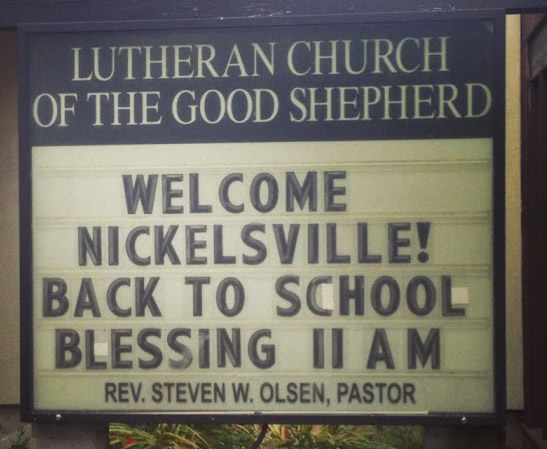
Church assisted eviction: God must have a sense of irony
* * * * *
I will be pursuing this story further, seeking comment from Reverend Olsen and Seattle officials. I’m not a fan of homeless camps, self-managed or otherwise. But if they are to be tolerated under city law, then they must not be allowed to become tools by which the wealthy and powerful–the Sharon Lees, Scott Morrows, and Reverend Olsens of the world–can hold poor people down.
==============================================
*Morrow using a church as enforcer is not something new; it’s part of a pattern. In this story from February of 2014, there was a confrontation at another one of the Nickelsville homeless franchises in Seattle. In that case, too, the residents decided they didn’t like Mr. Morrow telling them what to do, so they ousted him, and the host church threatened to pull the plug on then a day or two later. In that case, the camp disbanded and several dozen homeless people were returned to the street.




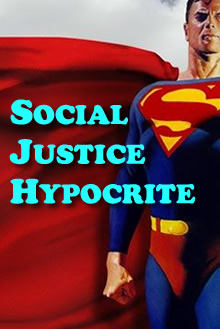
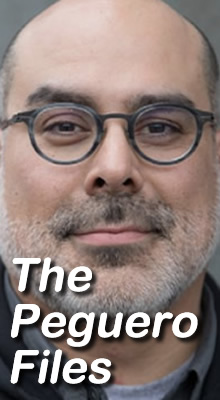

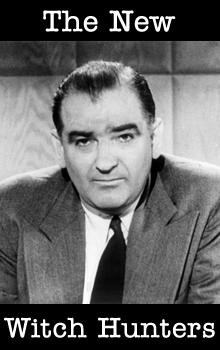


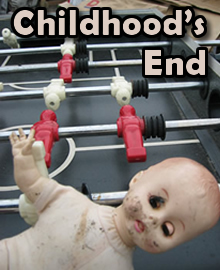






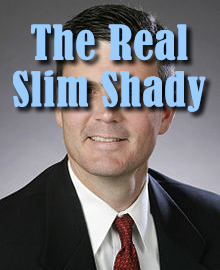


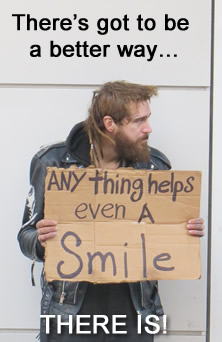
I am currently involved with SHARE and after reading this blog, I think there might be a little misunderstanding about what SHARE is and how it impacts the lives of hundreds of homeless men, women and children, every night.
First let me say that SHARE is King County’s largest and most cost effective emergency shelter provider. SHARE’s shelters/encampments are self-managed emergency shelters and are infinitely more popular with the homeless,than the traditional shelter model.
Self-managed shelters are for all intents and purposes, run and operated by the very homeless individuals whom stay at the shelters. Democracy and accountability are the cornerstone of the self-managed shelter model. Instead of the traditional shelter model where paid staff do everything for the individuals in the shelter, SHARE’s self-managed shelters fosters a great deal of personal growth and an intimate appreciation for responsibility in its shelter participants. The communication skills, goal setting, conflict resolution, problem solving, leadership, and responsibility are only a few of the critical life skills a SHARE shelter participant takes away with them after participating in SHARE. SHARE does so much more than provide a safe, dry place to get sleep and rest, it helps return a homeless individual to normalcy. As a homeless individual in a SHARE shelter, I have participated and advanced SHARE in a positive direction towards its goal of helping end homelessness. Anyone considering a worthy place to help fight homelessness or donate money to that cause, would do well to consider SHARE.
You’re arguing the following:
That Morrow should continue to pay for services even though he’s been asked to resign.
That the church and LiHi should continue to take responsibility (whatever that responsibility entails) for the debts and actions of new leaders whose policies and priorities aren’t known to them.
I hope that the residents are able to find a new nonprofit, but your arguments are specious and you should cease making them.
This eviction battle I’m describing here was over last year. Morrow and LIHI won and the leaders of the rebellion were kicked out. The fact is that Morrow never did really resign. He just pretended to resign, but he was always in charge at the camp, except for a few days. And although he claimed to have a moral right to kick out the campers because he was paying the bills, he wasn’t even doing that. When I asked him to show me the records that he’d paid bills, he didn’t respond. Similarly, when I asked Sharon Lee of LIHI to show me which of the camp’s bills she was paying, she did not respond. Later I found out that it was the City who paid the bills for port-a-pots and trash pick-up. So what’s happening here is that the City (that is, the taxpayers) foot the bills for Nickelsville, while Morrow and Lee call the shots.
There has been another rebellion against Morrow’s rule just recently, but the same scenario will play out this time. He’ll threaten to evict everyone, and he’ll get his way. Meanwhile he’s not accountable to the city or anyone else.
Neither the article nor comments indicate what the real disagreement was about. A first reading gives me the impression that Scott Morrow has been the guy dealing with suppliers like the porta potties, and with donors of camping space, and doing the fundraising, and the promising-to-pay. If so, then, kudos to Scott Morrow. So, what’s the beef? Is this a case of campers not wanting to be constrained to rules that are really coming down from LIHI, City, landlords, or funders? like, shoot-the-messenger? I mean, what’s the story>??
The disagreement was almost certainly about Mr. Morrow telling campers to do something they did not want to do. The very fact that Morrow, a non-resident, or Sharon Lee, another non-resident, can threaten to evict people from the camp en masse, gives the lie to the Morrow’s claim that the camps are self-managed.
A civil rights complaint was filed against Morrow and SHARE a few years ago by a camper who alleged that Morrow and his henchmen were ordering homeless people in the camps to attend political demonstrations on pain of being evicted if they refused. The complainant was credible. I have met and spoken with her, and she provided evidence of what she was saying. Unfortunately the case was dismissed by the Seattle Office of Civil Rights because it does not have jurisdiction over the particular camp in question, which was in Kirkland.
The larger point here is that absent an independent appeals process – independent of Mr. Morrow and his organization, that is – no one will ever know the nature of internal complaints against Morrow or other camp bosses, because those complaints will never see the light of day. Morrow rules his camps with absolute authority, and we should be concerned about that for the same reason we’re concerned when we hear about vulnerable people getting into religious cults.
In any case, given that Morrow is now receiving money from the City, the City has a legal obligation to provide a fair and speedy appeals process. (See here for the Supreme Court case that established this: https://en.wikipedia.org/wiki/Goldberg_v._Kelly) Unfortunately the City doesn’t see it that way. I’ve tried repeatedly to get them to establish an independent appeals process for the camps, and they refuse. Which is not surprising, since Morrow has friends on the City Council. See here and here. It’s probably going to take a lawsuit to force them to do that.
I’ve also been researching this situation, and think that the city should audit Nickelsville and SHARE/WHEEL and also hire an independent consultant to do a capacity study of the governance and management of the encampments, and make recommendations for positive changes. Scott is using his power to bully homeless people and it is not OK, especially not if the city is paying for it.
Legal encampments are a very good thing and I support them wholeheartedly. They give residents access to water, portable toilets, and garbage collection. They have a perimeter fence and volunteer security personnel. Drugs, alcohol, guns, and illegal activity are not allowed in legal camps. Some of them have tiny houses; others have raised platforms for their tents. Living conditions in the legal encampments are better than they are for illegal homeless campers. Legal encampments save lives and it is wonderful that the city is expanding these services. Unfortunately, because all the legal encampments are under a monopoly with poor management and no accountability or oversight, they are not being managed as well as they should be, and human rights violations are unnecessarily occurring within the camps.
I first became involved in the situation 1/29/16 when my friend David Delgado called me to say that he had been fired from Nickelsville. He had filed a grievance against his supervisor, Scott Morrow, and believes he was fired for being a whistleblower. Mr. Morrow functions as the director of Nickelsville, although he does not appear to have a job title or job description. He is also the director of SHARE/WHEEL. SHARE/WHEEL and Nickelsville are the only nonprofits in Seattle authorized to run sanctioned, city funded encampments for homeless people. Nickelsville operates in partnership with LIHI.
David Delgado tried to file a grievance stating that Scott was ignoring safety concerns in the camps, but that instead of investigating his concerns, he was fired. Scott says that David was fired for not doing his job. Personally I believe that David was doing a heroic job of earning his $11/hour as a front line social worker, and that it was a mistake to fire him. However, my larger concern is that the original grievance was never addressed, because there is no reliable system of accountability at Nickelsville. On 2/1/2016 Scott issued a letter to campers saying that grievances against him could be presented to SHARE/WHEEL staff, or the Nickelsville Board of Directors, and then gave an email and PO Box for reaching the Board. However, Scott himself was the one checking that email and PO Box, not the Board. A Board member emailed me on 2/13/16 saying that he had changed the password to the email so that a Board member would start checking it instead of Scott, but acknowledged that Scott was still the only person checking the PO Box.
This lack of oversight is particularly painful because in February of 2015, campers had filed grievances against Scott and tried to get him fired. At that time the Board promised them that changes would be made and a system of accountability would be put in place. Clearly, this did not happen.
When the three Nickelsville camps (at Dearborn, 22nd and Union, and Ballard) heard that David was fired, all three camps voted to hold Scott in no confidence. The Dearborn site went a step farther and barred him from the camp. In response, the campers were told by Scott that if they did not reverse their decisions and fall into line, then they would be evicted. Two of the three sites were frightened into submission; only the Dearborn site refused to back down. Because the Dearborn site is directly across the street from the Jungle, it was the site most affected by the mismanagement that led to the safety concerns that David originally raised, and which are yet to be addressed by Nickelsville’s leadership.
In the past two weeks, I have attended three camp meetings and spent about 20 hours interviewing Nickelsville residents and former residents. I’ve also spoken with current and former staff and board members, and had confidential conversations with service providers at other agencies working in homeless services in Seattle. I myself have been working in homeless services and nonprofit management in Seattle for the past 15 years. I have expressed my concerns about the situation to both the Nickelsville Board, LIHI, and the Church of the Good Shepherd. The Church of the Good Shepherd is the organization currently evicting Camp Dearborn from their present location.
In collecting oral testimony from the campers, I’ve been shocked by the stories I’ve heard about Scott’s ongoing patterns of mismanagement and unethical behavior. While the situation needs more thorough research, I speak up now in order to halt the impending eviction of the residents of Camp Dearborn, which is slated for 2/20/16.
I do not expect you to take my word for it. What I’m begging you to do is to halt the eviction proceedings while the situation is adequately researched by a respected external observer, and conduct a capacity study which examines Nickelsville’s leadership, governance, and management, and makes recommendations to the city on ensuring city funding is used wisely and ethically in these camps. For my part, I am committed to continuing to collect oral testimony and to document camp conditions until positive changes are made.
In a camp meeting on 1/31/16, Scott stated, “Sure, I haven’t always been nice, but I get the job done.” I would like to question that. First, it is not clear to me that the camps are being well managed. Second, it is my belief that treating people like human beings is foundational to working ethically with oppressed and marginalized populations. It is not an optional frill. The worst part of homelessness is not the physical deprivation but the social and emotional deprivation. Homeless people are frequently dehumanized and treated as “less than.” They need a safe place to sleep at night, but they ALSO need to be treated like human beings that deserve a safe place to sleep at night.
Scott habitually shames and punishes camp residents who stand up to him and disagree with him. Often, he does so in nonverbally or with passive aggressive voice inflection that makes it difficult to document on papers. Here are some examples:
• In a public meeting, Scott distributed a 38-page photocopied handout. Later in the meeting, a camp resident raised his hand and asked a question. Scott replied, “you could have read it in the handout…. if you could read.”
• A resident told me, “When I spoke up about the drugs in camp, Scott told people I was a drug dealing scumbag and not to listen to me. I don’t even do drugs. I don’t deal drugs. I don’t like being around drugs.” The informant then paused, teared up, looked at the ground, and said in a much quieter voice: “Also, I’m not scum.”
• At a camp meeting, a resident said “Scott said I had to come to the meeting or be evicted, and then when I was there, screamed at me in front of everyone, calling me names. He screamed and screamed and screamed.”
• A camp leader, in a meeting: “Scott needs to stop treating us like idiots and garbage…. We just want accountability. Sometimes people get burned out, or overly aggressive. Not everyone notices when they are being an a**hat. When I’m being an a**hat, I get held accountable. Everyone needs that.”
• An elderly resident told me: “I wish I could talk to you but I can’t because Scott will take away my Porta Potty and I really need it.”
One by one, these incidents seem small, but as a persistent pattern of behavior, they contribute to a dysfunctional system that does not empower people for success. He routinely discredits people who speak up against him by making up untrue and unkind stories about them.
I know that this is an ugly situation that few really want to deal with. It would be much easier to shove it under the rug again. Helping homeless people is complex and difficult and painful, and it is easy to get overwhelmed and throw up our hands. But we need to help anyway, because it is the right thing to do, and once you are doing something you might as well do it right. It is not actually that hard to be both competent AND kind in nonprofit management; it is not as if we have to choose one over the other. This is a fixable situation, and we should fix it now before it spreads to the new camps.
Typical Seattle Poverty Pimping at work. Nothing new here. “But it’s for the (fill in the blanks… children, homeless, widows and orphans).” Lol.
Sounds like a case of bullying. Mr Morrow sounds like he suffers from napoleon complex. On the other hand, who do these obviously inferior beings think they are? Don’t they understand that democratic rule means dictator?
its really this simple: share belongs to scott. scott is the boss, period. self management sounds good but its not whats really going on. scott is the boss. scott is about ending homelessness. thats his goal folks, ending homelessness. step one is keep homelessness in the news, etc. forget all the self managed blah blah blah, share belongs to scott. scott runs the show. scott knows what hes doing. scott is share.
You’re right, Stan. At least about Mr. Morrow being the boss of SHARE. I’ve heard it too many times from too many campers to believe anything else. Maybe he really is about ending homelessness as you say, but I rather doubt it . . . unless by “ending homelessness” you mean a whole bunch of people living in tent camps under Morrow’s control. If he were really about ending homelessness, he’d be encouraging outside social workers and service providers to come into his camps to help people transition into permanent housing. But that idea is as far from his head as Paris, Texas is from Paris, France.
Reading these comments, I can only say Scott Morrow needs to be fully investigated including his organization. He’s exceptionally corrupt, and he uses port-a-potty, portable showers, food, and bus tickets including the camp site, itself, to force compliance with his directives. Yet, he won’t open the books, has token people that sign checks, do the books, and the like to make it all look good. As to Democratic Process, if you have so many rules that the rules contradict one another, and they’re enforced by a committee of five weekly elected individuals that in most cases are so messed up with anger, hurt, alcoholism, drug addiction, and poor cognitive abilities then people suffer. But I bring up this point, tent cities 3 and 4 both camp on land owned by churches, its great they do it, and its fine that they’ll bring extra blankets, food, toiletries, etc to the camp, and that they throw money at the camp and organization, but one item that is not given the temporary residents on their property is the church bringing them in for a revival. Has it occurred to anyone that poverty, lack, sickness, addiction(s), anger, and resentments and many other items are NOT from God, and the best and only way to rid people of it is to bring them Christian Revival, but they think that throwing money, food, and other items at them will solve the problem. Trust me, it doesn’t. They are churches, Jesus went into the homes of sinners telling his apostles that the healthy don’t need a physician, but the sinners do! Another point, SHARE/WHEEL itself, the organization is guilty before God of Controlling others in an unGodly way, they use legalism, spitefully using them, and they are cruel. In the the event of a death of a homeless person sent out on a bar, which is mostly unfair, is swept under the rug and not spoken of at all. Yet, this is commonly said in the meetings and rallies he loves to do. “People without housing die,” “accountability,” and the list of names of people on the brass fallen leaves that the Women in Black mourn remember whom are also tied in with SHARE/WHEEL. UnGodly Control, manipulation, legalism, and coercion are all forms of “Witchcraft” found in the passages in the Bible. Is Morrow guilty of “Witchcraft?” Why say “People without housing die” when its policy to bar from camp anyone for every little reason there is and often times no reason at all. Why say “Accountability” when the leadership, itself, is not accountable? I have a strong feeling that when its all said and done, many of these leadership people and even those church pastors and priests that said yes to tent city staying on their land will say on judgment day, “Lord, I helped the homeless, gave them space on our church property, gave them food, clothes, blankets, gave some of our tithe money to SHARE/WHEEL, and brought them necessities as they needed it.” Jesus will say, “depart from me, for I never knew you.” Giving to SHARE/WHEEL is pouring money and goods down a bottomless pit and the homeless crisis continues to grow in numbers… So, I suggest this bring evangelists to them, and I mean ones that know how to give Satan a big BLACK eye and free people and bring them salvation. Then once, those people are saved what how God working through the Holy Spirit can turn things around so fast…Because SHARE/WHEEL is a very dark Spiritual place.
It appears the incorruptible Mr. Morrow has gone to sing with the Choir Invisibule.
David,
Just came across your fascinating blog and sordid tales from behind the scenes. It is unfortunate when people entrusted with the public good misuse that trust. How has the dynamic within SHARE/LIHI changed since Scott Morrow’s death or is it still too early to tell?
Scott Morrow’s passing hasn’t had much of an effect on LIHI, but SHARE has pretty much collapsed. Had this happened 10 years ago, it would have been great, because SHARE and Morrow were largely responsible for the direction Seattle has taken on “homelessness.” But him leaving the scene now won’t make much difference because the damage is already done.
LIHI is carrying on Morrow’s tradition of manipulating the city council, and they’re running a whole network of shack villages now without any help from Scott.